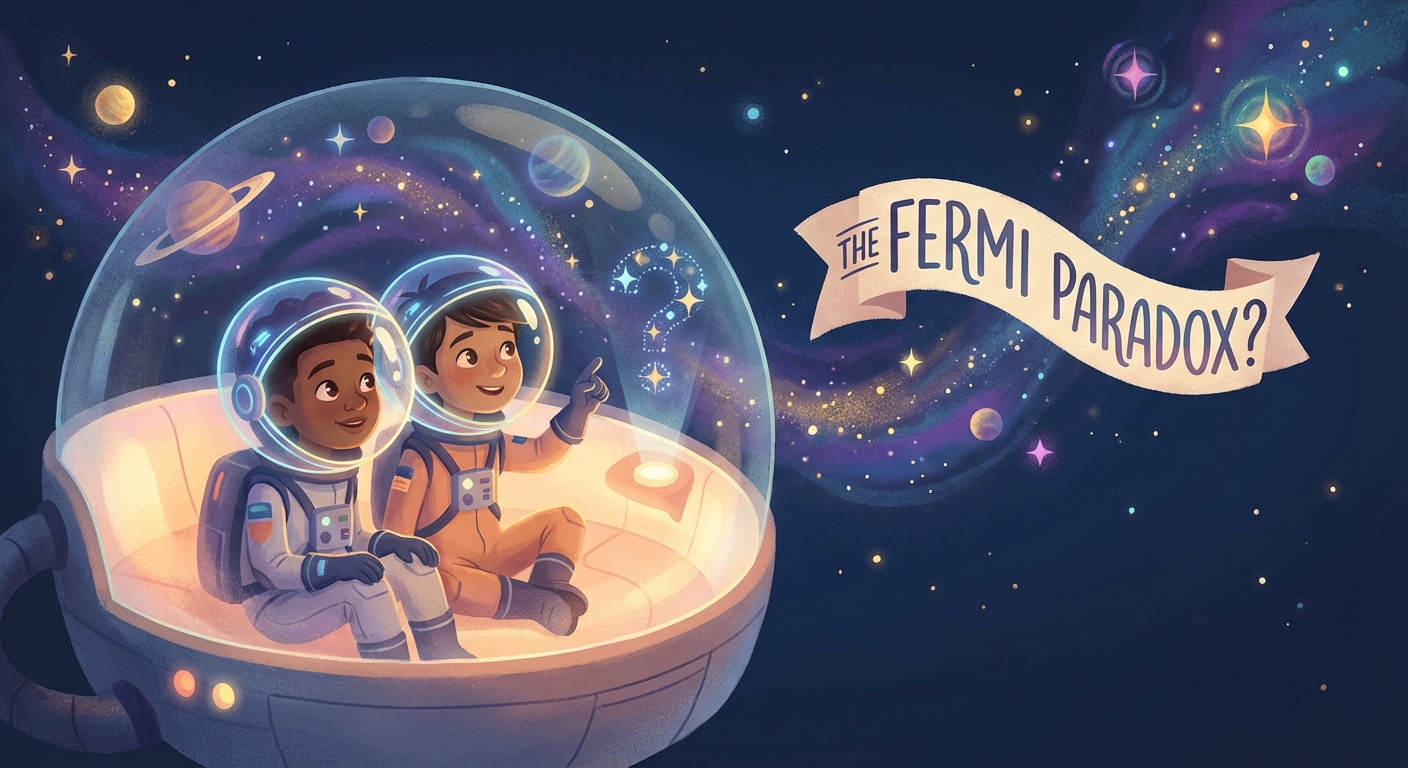Fermi Paradox
What the Paradox Asks
The Fermi Paradox is a question that scientists ask about space. It goes like this: “If the universe is huge and full of stars, why haven’t we found any signs of other life?”
The idea was first spoken by an Italian scientist named Enrico Fermi. He wondered why, with billions of planets that could be like Earth, we still see no alien signals, rockets, or messages.
How Big Is the Universe?
- Stars And Planets: Our Milky Way galaxy has about 100 billion stars. Many of those stars have planets that orbit them.
- Age: The universe is around 13.8 billion years old, giving life a long time to appear and grow.
- Habitability: Some planets are in the “Goldilocks zone,” where it isn’t too hot and isn’t too cold for liquid water—a key ingredient for life as we know it.
Because there are so many chances for life, many people expect that somewhere out there, intelligent beings have already built radios or spaceships. Yet our telescopes and radio dishes have not picked up clear evidence.
Possible Explanations
- We’re Early: Earth might be one of the first planets where life became complex. Other civilizations could appear much later.
- Rare Conditions: Even if many planets exist, the exact mix of chemistry, climate, and stable environments needed for life might be extremely rare.
- They’re Hidden: Advanced aliens might use communication methods we don’t understand, or they could keep a low profile to avoid danger.
- They’re Far Away: Space is enormous. Even if another civilization is sending signals, the messages could take thousands or millions of years to reach us.
- We Haven’t Looked Enough: Our searches cover only a tiny fraction of the sky and a narrow range of frequencies. There could be signals we simply missed.
Why the Paradox Matters
The Fermi Paradox pushes scientists to ask big questions about our place in the cosmos. It encourages the development of better telescopes, more powerful computers, and new ways to listen for distant signals. Even if we never find aliens, the search teaches us a lot about planets, stars, and the physics that govern the universe.
Understanding the paradox helps young explorers think critically, stay curious, and appreciate how much we still have to learn about the night sky.
